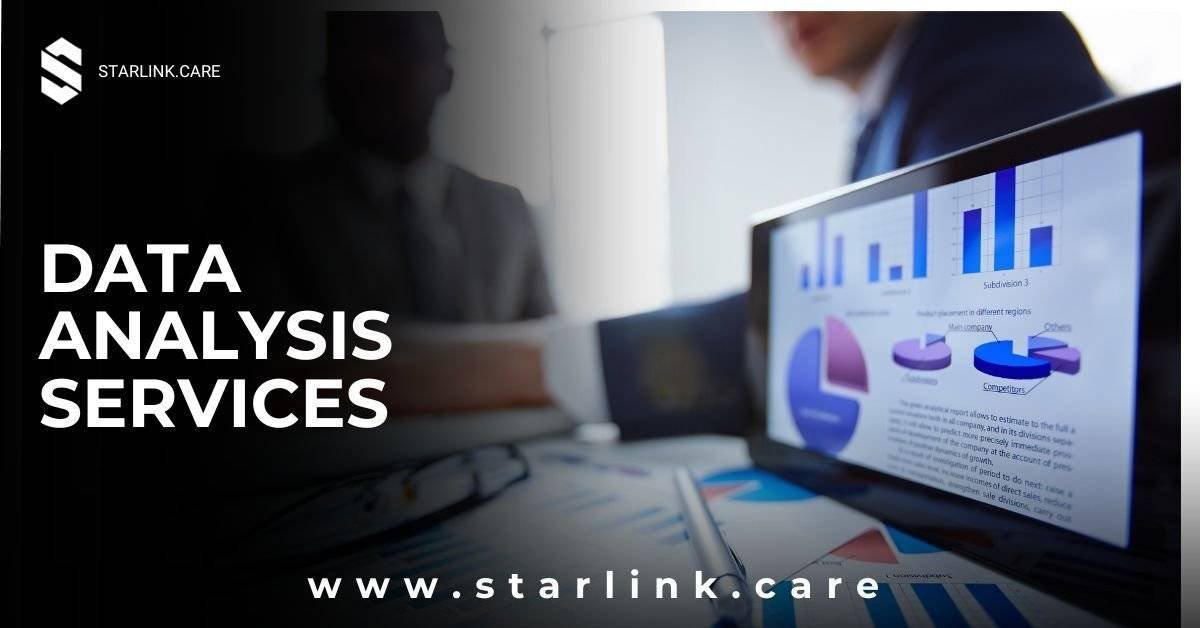The Essential Guide to Data Analysis Services
In today’s data-driven world, making sense of vast amounts of information is crucial for businesses to stay competitive and make informed decisions. This is where data analysis services come into play. These services help organizations interpret data, uncover valuable insights, and turn raw information into actionable strategies. In this article, we’ll delve into what data analysis services are, why they are important, and how to leverage them effectively for your business.
What Are Data Analysis Services?
Data analysis services involve examining data to extract meaningful insights and trends. These services include a range of activities, from data collection and cleaning to statistical analysis and visualization. Essentially, they help businesses make sense of complex data sets to support decision-making and strategy development.
Why Are Data Analysis Services Important?
Imagine a retail company that collects data on customer purchases, website traffic, and social media interactions. Without proper analysis, this data is just a collection of numbers and trends without much meaning. By employing data analysis services, the company can:
- Identify Trends: Spotting trends in customer behavior or sales patterns helps in making strategic decisions.
- Improve Efficiency: Analyzing operational data can uncover inefficiencies and areas for improvement.
- Enhance Customer Understanding: Understanding customer preferences and behavior can help tailor marketing strategies and product offerings.
- Support Data-Driven Decisions: Reliable data analysis provides a solid foundation for making informed business decisions.
How to Choose the Right Data Analysis Services
Choosing the right data analysis services provider is crucial to getting valuable insights from your data. Here’s a step-by-step guide to help you find the best fit for your needs:
Step 1: Define Your Objectives
Before reaching out to data analysis providers, clearly define what you hope to achieve. Are you looking to:
- Understand Customer Behavior: Analyze customer interactions to improve engagement and retention.
- Optimize Operations: Identify bottlenecks and inefficiencies in your processes.
- Improve Marketing Strategies: Use data to refine your marketing campaigns and target audience.
Step 2: Research and Shortlist Providers
Start by researching potential data analysis service providers. Look for companies or freelancers with a proven track record in:
- Data Analytics: Expertise in analyzing various data types and providing actionable insights.
- Industry Experience: Familiarity with your industry to ensure they understand your specific needs.
- Tools and Technologies: Proficiency in tools like Tableau, Power BI, and Google Analytics for effective data analysis.
Step 3: Evaluate Their Expertise
Assess the expertise of potential providers by:
- Reviewing Case Studies: Look at their previous projects to understand their approach and success stories.
- Checking References: Contact previous clients to get feedback on their experiences.
- Discussing Methodologies: Ensure they use robust methodologies and techniques for accurate analysis.
Step 4: Discuss Project Details
Once you’ve shortlisted a few candidates, discuss the specifics of your project:
- Scope of Work: Define what analysis is needed, including data collection, processing, and reporting.
- Timeline: Agree on deadlines for deliverables and milestones.
- Cost: Understand the pricing structure and any additional costs involved.
- Communication: Set up regular check-ins to discuss progress and insights.
Step 5: Start with a Pilot Project
Before committing to a large-scale analysis, consider starting with a smaller pilot project. This allows you to evaluate the provider’s capabilities and ensure they meet your expectations.
Best Practices for Working with Data Analysts
To ensure a successful data analysis project, follow these best practices:
Clear Communication
Maintain open and clear communication with your data analysts. Use platforms like Slack or Microsoft Teams for regular updates and discussions. Clear communication helps prevent misunderstandings and ensures alignment on objectives.
Provide Detailed Data
Provide as much detail as possible about your data and objectives. The more information you provide, the better the analysis will be. Include data sources, any existing reports, and specific questions you want answered.
Review Findings Regularly
Set up regular meetings to review findings and discuss insights. This helps ensure that the analysis is on track and addresses your business needs.
Be Open to Recommendations
Data analysts may offer recommendations based on their findings. Be open to their suggestions, as they can provide valuable insights that you might not have considered.
Real-World Example: A Success Story
We are providing Digital Marketing Service. Let’s look at the example of HealthFirst, a healthcare provider facing challenges in managing patient data and improving service efficiency. HealthFirst decided to invest in data analysis services to gain insights from their extensive data.
The data analysis team started by cleaning and organizing the data from various sources, including patient records and appointment logs. They used advanced analytics tools to identify patterns and trends, such as peak appointment times and common patient concerns.
The insights gained from the analysis allowed HealthFirst to optimize its scheduling system, reduce wait times, and improve patient satisfaction. The data-driven approach also helped them make informed decisions about resource allocation and service improvements.
Conclusion
Data Analysis Services are essential for turning raw data into actionable insights that can drive business success. Whether you need to understand customer behavior, optimize operations, or improve marketing strategies, choosing the right provider and following best practices can help you leverage your data effectively.
If you’re considering investing in data analysis services, take the time to define your objectives, research potential providers, and communicate clearly throughout the project. With the right approach, you can unlock valuable insights and make data-driven decisions that enhance your business performance.
For more information on data analysis and tools, check out resources like Starlink.care, Khan Academy’s Data Analysis Course and DataCamp, which offer valuable insights and tutorials to help you understand data analysis better.







